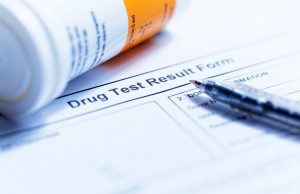 In a prior blog, we discussed OSHA’s recently enacted anti-retaliation rule which says, among other things, that employers cannot deter injury and illness reporting or retaliate against employees for such reporting. The rule itself does not expressly address drug-testing but the preamble makes clear that OSHA believes mandatory post-accident drug testing would be retaliatory. However, OSHA further stated that mandatory post-accident drug testing to comply with the requirements of a state or federal law or regulation is permissible. Mandatory post-accident testing to receive workers’ compensation discounts is also lawful. In other words, such testing would not be retaliatory because there is a lawful and valid reason that permits or requires such testing.
In a prior blog, we discussed OSHA’s recently enacted anti-retaliation rule which says, among other things, that employers cannot deter injury and illness reporting or retaliate against employees for such reporting. The rule itself does not expressly address drug-testing but the preamble makes clear that OSHA believes mandatory post-accident drug testing would be retaliatory. However, OSHA further stated that mandatory post-accident drug testing to comply with the requirements of a state or federal law or regulation is permissible. Mandatory post-accident testing to receive workers’ compensation discounts is also lawful. In other words, such testing would not be retaliatory because there is a lawful and valid reason that permits or requires such testing.
In the absence of a permissible reason to perform a mandatory post-accident drug test the issue essentially becomes whether the employer had a reasonable basis for drug testing an employee who reported a work-related injury or illness after an accident. In guidance issued on October 19, 2016, OSHA opined the “central inquiry” will be whether the employer had a reasonable basis for believing that drug use by the reporting employee could have contributed to the injury or illness. If not, the employee should not be drug tested.
The guidance provided a number of factors in determining the reasonableness of drug testing which include 1) whether the employer had a reasonable basis for concluding that drug use could have contributed to the injury or illness; 2) whether other employees involved in the incident were also tested (as opposed to only the reporting employee); and 3) whether the employer had a heightened interest in determining if drug use could have contributed to the injury or illness due to the hazardousness of the work being performed.
Drug testing an employee whose injury could not possibly have been caused by drug use would most likely violate the rule. OSHA provides the example of drug testing an employee for reporting a repetitive strain injury.
In sum, post-accident testing may still be permissible but the employer needs to conduct a fact-sensitive analysis to determine whether it has a reasonable basis to do so. Drug testing policies that address post-accident testing should be carefully reviewed to ensure compliance with the new rule and interpretive guidance.